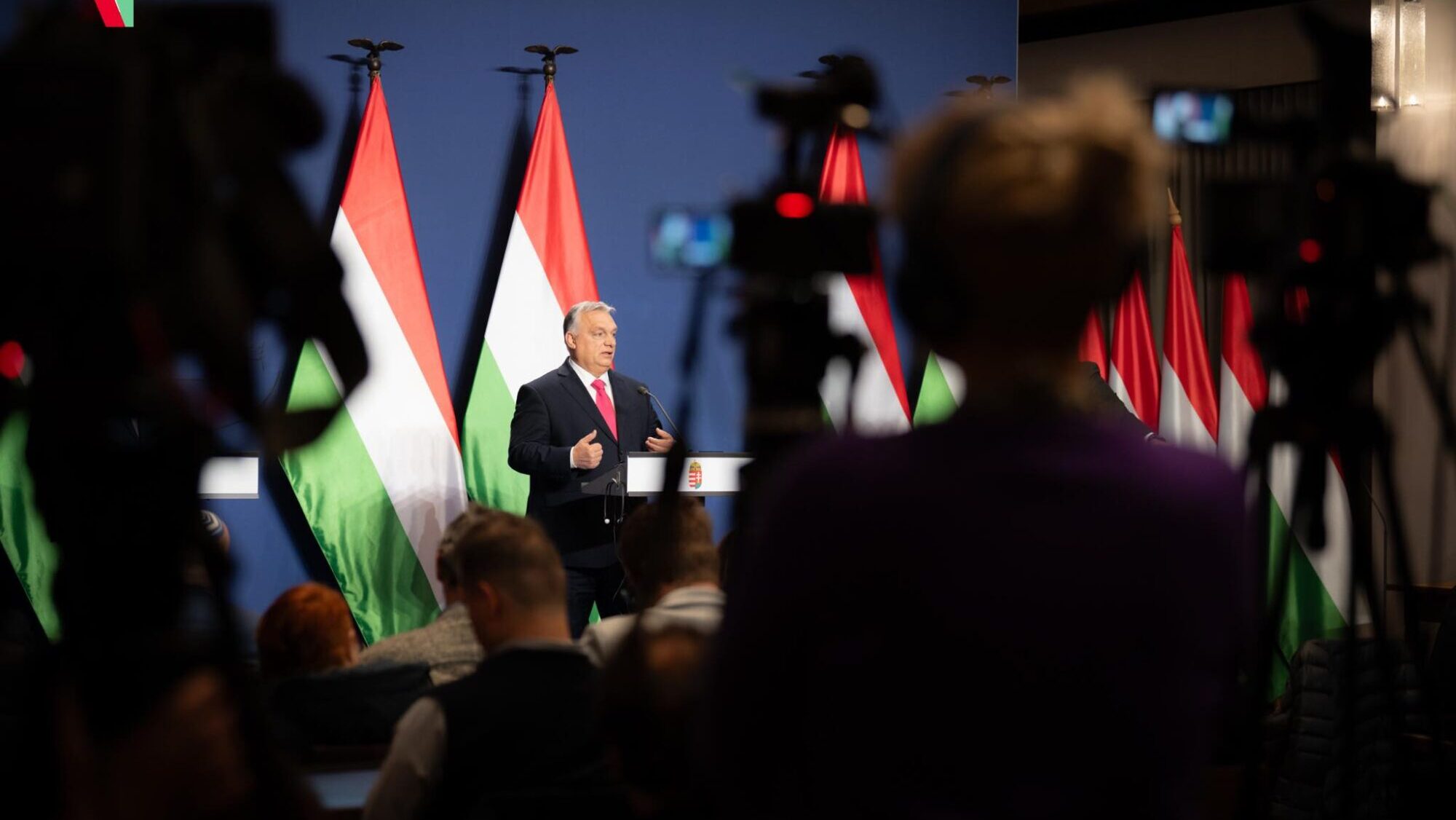
Viktor Orbán
Photo: Viktor Orbán / Facebook, 21 December, 2023.
EU leaders will aim to reach a unanimous agreement on the ‘Ukraine Facility’—the multi-annual financing scheme worth €50 billion—at a special European Council summit on February 1st. They are now considering the introduction of an “emergency brake” into the funding mechanism that would allow any member state to temporarily suspend the payments to Ukraine.
Commission President Ursula von der Leyen is confident in reaching a final agreement, by reshaping negotiations to include a set-up similar to the one built into the pandemic recovery package. In contrast, Hungary has proposed annual reviews of the Facility to ensure that Ukraine won’t misuse the massive assistance. Each review would then mean that subsequent, unanimous approvals from the European Council would be needed to resume spending.
According to Politico, the ‘brake’ would permit pauses while concerns are addressed about how Kyiv spends the money—but only until the next European Council summit. So while the mechanism means any member state can delay the continuous disbursement of EU funds, it doesn’t allow single countries to veto the individual tranches. This is because resuming the payments would not need the European Council’s unanimous approval. While this may appear to be a technicality, the real goal of the Eurocrats is bringing sovereigntist member states into line.
Hungary has not supported the package and advocates an annual veto on renewal. But since this option would theoretically give Budapest at least three more occasions to use its veto power during the four-year financing period, Brussels will try to reject this proposal at all costs.
Negotiations continue in the background, where both the Commission and the Council know that some kind of concession is needed in exchange for Budapest’s approval, hence the suggested ‘emergency brake.’ However, it’s unlikely that this largely symbolic gesture would secure Viktor Orbán’s compliance. Back in December, his government floated the idea of tying the Ukraine Facility to the unblocking of Hungary’s remaining frozen funds, worth around €20 billion.
Budapest’s position is clear. It objects to granting €50 billion to Ukraine without additional oversight on how it’s spent. It also opposes disbursing the money from the joint EU budget, suggesting instead that it should be from an extra-budgetary mechanism that member states can opt out of—which would also solve the potential challenge of vetoes by member states.
Like the Commission itself, other EU members insist on a “Team Europe” approach and spending public money whether a national government wants it or not, feeding the political deadlock, The same sentiment is driving the European Parliament to adopt a resolution that threatens the Commission with legal action if it moves to release any more funds to Hungary.
While several diplomats are optimistic about Hungary being persuaded by the suggested “emergency brake,” PM Orbán showed no signs of compromise when he mentioned it on Tuesday during a joint press conference with Slovakian PM Robert Fico in Budapest.
In his speech, Orbán reiterated his long-standing position criticizing the way Brussels is trying to force member states into debt without the consent of their citizens. He asserts that promising in advance to splash Hungarian taxpayers’ cash is irresponsible, to say the least.
“Giving €50 billion for four years in advance is a violation of budget management and the related national interests,” the prime minister said. “We don’t even know what will happen in a quarter of a year, let alone four.”
We do not want to take up a loan jointly with anyone, and we do not want to solve the problem within the EU budget. This is the Hungarian proposal. And if Brussels accepts this, Ukrainians will get help outside the budget. If Brussels does not accept it, then I will unfortunately be forced to stop the process.
It was my pleasure to host PM Robert Fico today in Budapest. We discussed bilateral relations and of course the hottest item on the EU-agenda: #Ukraine. pic.twitter.com/oLXj8zLtqD
— Orbán Viktor (@PM_ViktorOrban) January 16, 2024
